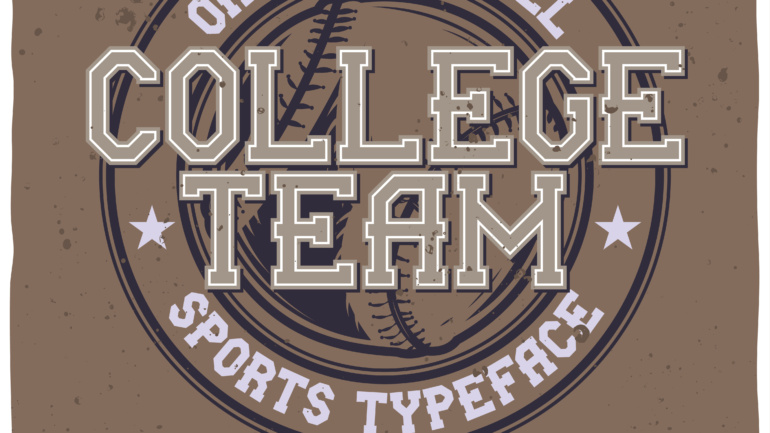The Art of the Citation: Why MyBib Is the Unsung Hero of Academia
In the world of academic writing, one thing is certain: citations are the unshakeable foundation. Whether you’re building a fortress of research or a quaint house of reflections, the way you acknowledge those who came before matters. And while writing a paper can feel as refreshing as a morning coffee, managing citations can feel more like untangling Christmas lights in the middle of July. Enter: MyBib, the free citation generator that’s redefining the citation game.
You might wonder, “Why MyBib? What’s so special about this citation tool?” As a blogging enthusiast with a particular fondness for wordplay and an ever-growing stack of references, I believe it’s high time we look into why MyBib deserves its moment in the spotlight.
A Tool for the Perennially Distracted Student
Let’s paint a picture. It’s midnight. You’ve spent hours crafting the body of your paper on The Role of Ethical Philosophy in the Social Media Age, and it’s finally done—or so you think. Then, it hits you: no citations. Not a single in-text APA, MLA, or any other variety of formatting symbol in sight. For some, this is where panic sets in, but not for those who have discovered MyBib.
With MyBib, entering the world of citations doesn’t feel like entering a battlefield. The interface is simple and easy to navigate, allowing even the most citation-averse student to generate perfectly formatted entries. It’s akin to using a virtual citation assistant. You enter a URL or a book title, and voila! Like magic, your source appears, properly formatted and ready for use. No sweat, no tears.
The Many Marvelous Styles: APA, MLA, and Beyond
One of the charms of MyBib is its versatility. Perhaps your paper requires APA style with its parenthetical citation format, or maybe MLA, where page numbers reign supreme. MyBib has you covered. The tool supports a range of formats, including Chicago, Harvard, and others, allowing you to seamlessly switch between styles. This is especially handy when working on multiple papers or projects across different subjects. Gone are the days of flipping through citation manuals, frantically double-checking every comma and period placement.
And if you’re ever in doubt about which citation style to use, MyBib offers a helpful guide for each style. This thoughtful feature is a reminder that MyBib isn’t just here to automate a task; it’s a partner in the learning process.
A Citation Generator that Actually Understands Websites
One of the most challenging parts of citation, especially in the age of digital sources, is citing websites. Sometimes, all you have is a URL and a vague memory of the article title, leaving you with more questions than answers. MyBib has cracked the code.
By automatically recognizing URLs and pulling out the relevant information, MyBib takes the mystery out of web citations. It can fill in titles, author names, dates, and even website names, all with a single click. Plus, you still have the option to edit each entry to ensure everything is just right.
More Than Just a Citation Machine: The Note-Taking Feature
Here’s a feature that’s a game-changer for students who want to keep track of their sources without constantly opening a new tab. MyBib’s note-taking function allows you to write down key points or observations directly alongside each citation. So, if you’re reading a study with a particularly insightful observation or a quote that would make your conclusion shine, you can jot it down immediately.
This feature is especially valuable during marathon research sessions, where one source blends into another. With the notes section, you have everything neatly compiled in one place, ready to insert into your paper with minimal fuss.
Accessibility and Cost (Spoiler: It’s Free!)
The “f-word” in academia can be both dreaded and delightful, but in the case of MyBib, it’s wholly positive. It’s free! Unlike some citation tools that offer limited services unless you upgrade to a paid plan, MyBib is committed to providing its services at no cost.
For students on a tight budget, this is no small thing. The lack of a paywall means that students from all backgrounds can access reliable citation help without financial strain. It’s an approach that speaks to MyBib’s mission of making research and learning accessible to everyone.
MyBib: A Safety Net Against Plagiarism
When deadlines loom and the temptation to speed through citations arises, it’s easy to make mistakes. Maybe it’s missing quotation marks, or perhaps a forgotten source snuck its way into a paragraph. Regardless of the slip-up, MyBib serves as an extra layer of protection against accidental plagiarism.
The platform offers features that help you stay organized and thorough in your work, keeping you in the clear when it comes to academic integrity. In a world where universities are tightening plagiarism policies, having a citation tool you can rely on is a must.
The Verdict: MyBib as a Game-Changer
For students, researchers, and writers who juggle sources like hot potatoes, MyBib is the real MVP of citation tools. It’s reliable, intuitive, and above all, accessible to everyone. With its user-friendly design, multi-style support, and little conveniences (like the note-taking feature), MyBib has made the art of citation manageable, and dare I say, enjoyable.
In the world of academic writing, where sources are the pillars of argumentation, having a tool that supports you in citing correctly is essential. So, if you haven’t yet, give MyBib a try. It may just turn your midnight citation panic into a peaceful cup of tea by the finish line.


